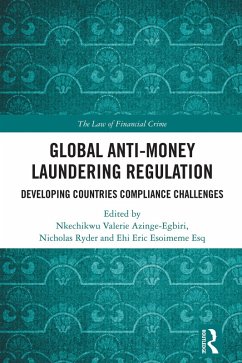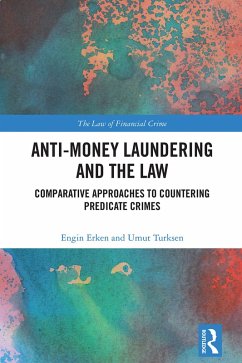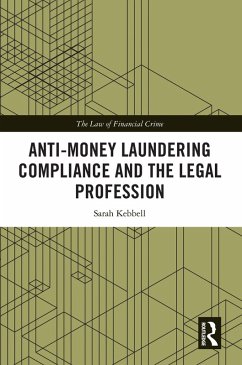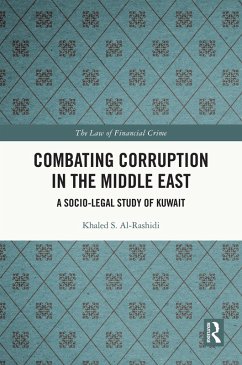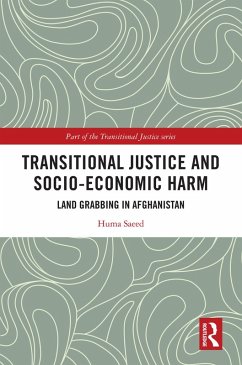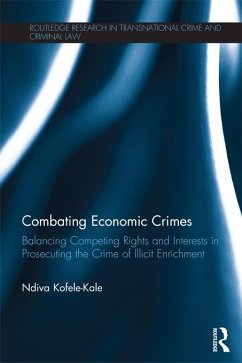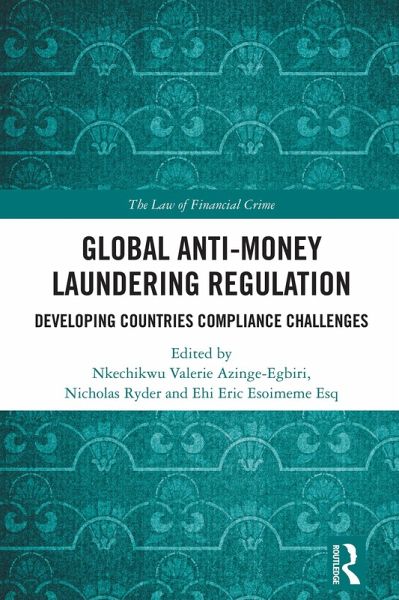
Global Anti-Money Laundering Regulation (eBook, ePUB)
Developing Countries Compliance Challenges
Redaktion: Azinge-Egbiri, Nkechikwu; Esoimeme, Ehi Eric; Ryder, Nicholas
Versandkostenfrei!
Sofort per Download lieferbar
42,95 €
inkl. MwSt.
Weitere Ausgaben:

PAYBACK Punkte
21 °P sammeln!
This book explores the politics of money laundering and terrorist financing (ML/TF) regulation in several countries across Africa and the Small Island States. Developed countries created the Financial Action Task Force (FATF) to combat ML/TF globally. Expectedly, the FATF's standards mirror existing banking regulations within the G7 countries. Yet, the standards apply to all countries irrespective of the limited ML/TF risks they pose to the global economy, their weak pre-conditions for effective regulation and their non-involvement in the FATF's framing. Still, such countries, mainly within th...
This book explores the politics of money laundering and terrorist financing (ML/TF) regulation in several countries across Africa and the Small Island States. Developed countries created the Financial Action Task Force (FATF) to combat ML/TF globally. Expectedly, the FATF's standards mirror existing banking regulations within the G7 countries. Yet, the standards apply to all countries irrespective of the limited ML/TF risks they pose to the global economy, their weak pre-conditions for effective regulation and their non-involvement in the FATF's framing. Still, such countries, mainly within the Global South, have worked hard to amplify their compliance with the regime due to fears of the repercussions of their non-compliance. This collection demonstrates how the global ML/TF regulation is treated as an implicitly superior legal regime where the Global South must comply irrespective of their perception of the FATF's legitimacy challenges. It shows that beyond exogenous factors such as neo-colonialism, endogenous factors such as weak institutions and corruption undermine the compliance trajectory of the Global South. Furthermore, it analyses the unintended consequences of transplanting FATF standards into diverse legal and cultural contexts. The volume contributes to our understanding of the challenges of transplantation from the Global North and how the Global South is steering within the constraints created by the FATF. It advocates for a comprehensive understanding of the nuanced compliance challenges of developing countries. It further proposes practical solutions to address them, emphasizing the importance of risk-based understanding, accountability, capacity-building and coordination in achieving effective anti-money laundering and counter-terrorist financing measures. The collection will be essential reading for researchers, academics and policy-makers working in financial crime regulation and international economic law.
Dieser Download kann aus rechtlichen Gründen nur mit Rechnungsadresse in A, B, BG, CY, CZ, D, DK, EW, E, FIN, F, GR, HR, H, IRL, I, LT, L, LR, M, NL, PL, P, R, S, SLO, SK ausgeliefert werden.




